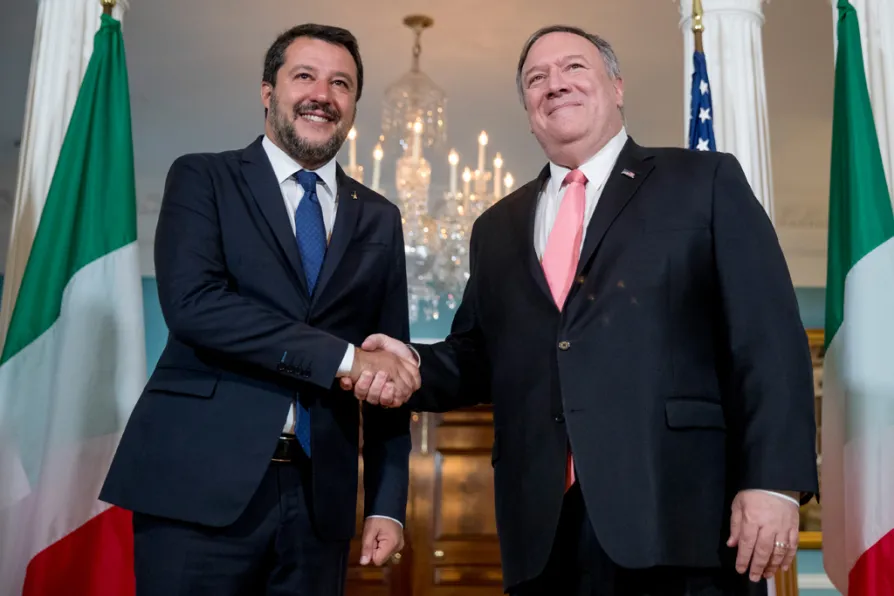Channel 4’s Dirty Business shows why private companies cannot be trusted with vital services like water, says PAUL DONOVAN

 Italy's Interior Minister Matteo Salvini responds to EU disdain by promoting his alliance with US rightwingers like Mike Pompeo
Italy's Interior Minister Matteo Salvini responds to EU disdain by promoting his alliance with US rightwingers like Mike Pompeo
THE deep institutional and political crisis gripping our country introduces — for the parents of the new political generation — a sensation similar to that experienced by the veterans of the defeated Chartist movement who saw in the late 19th century socialist and trade union renaissance their youthful dreams given new life.
The socialist song “England Arise, the long, long night is over” gave one voice to this reawakening. In Wales and Scotland the same sentiments found a distinctive national expression as British imperial power began to feel the competition from its continental and North American rivals and the stirrings of colonial revolt.
Today, as then, the constant recomposition of capital continually transforms the world of work and the social and political forces that express its contradictions. This proceeds in secret, unseen, the changes barely noticed until a slow accretion of these contradictions burst forth.

US tariffs have had Von der Leyen bowing in submission, while comments from the former European Central Bank leader call for more European political integration and less individual state sovereignty. All this adds up to more pain and austerity ahead, argues NICK WRIGHT

Starmer sabotaged Labour with his second referendum campaign, mobilising a liberal backlash that sincerely felt progressive ideals were at stake — but the EU was then and is now an entity Britain should have nothing to do with, explains NICK WRIGHT












